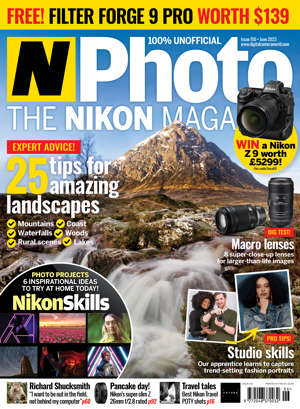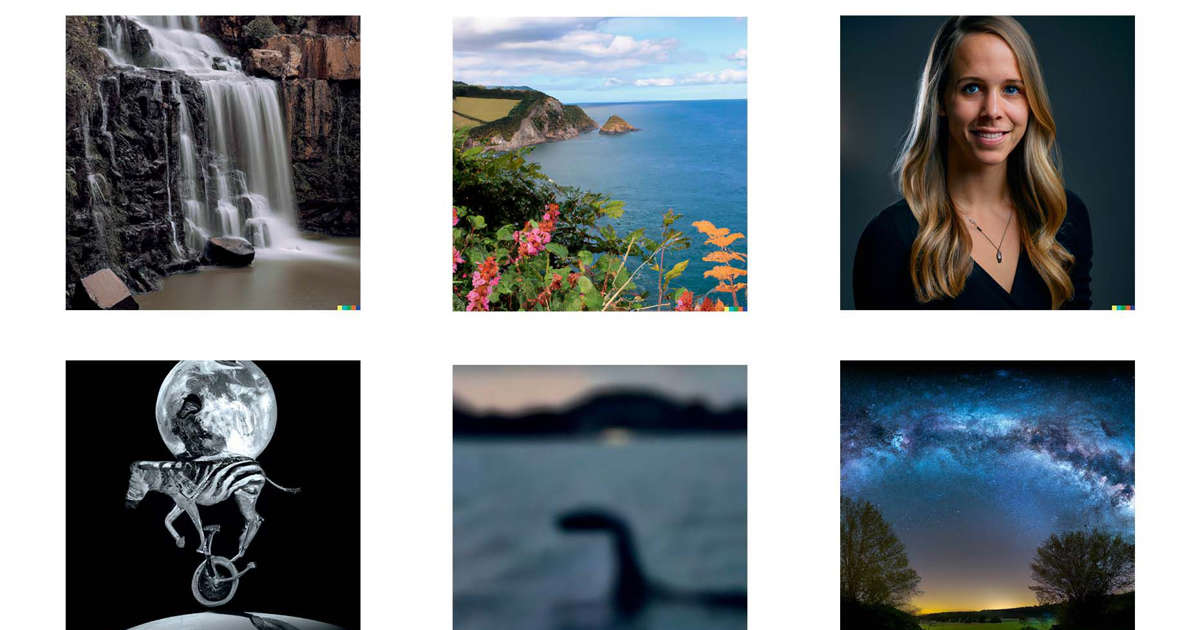[ad_1]
It’s been a busy month on N-Photo magazine. First, I captured a long exposure of a waterfall before visiting the Cornish coast to capture summer blooms. Then, I photographed the Milky Way core (in the middle of the day) and finished by capturing a blurry image of the Loch Ness monster. And that was all before I photographed a portrait of a person – who doesn’t exist, I might add – and a zebra, riding a unicycle in front of a supermoon…
If you haven’t already guessed, I didn’t actually photograph any of those increasingly absurd images. Instead, I used an artificial-intelligence image generator: DALL•E 2. This clever browser-based software uses AI to generate images of whatever you type into a search bar.
• Why not try out the best AI image generators for yourself
Admittedly, it’s not perfect and it struggles to deal with more complicated or abstract requests. However, it’s seemingly appeared out of nowhere and joins a growing list of web-based trends and technologies – such as deepfakes and NFTs – that have the potential to dramatically shift the status quo.
AI is nothing new. Its implementation dates back to the Fifties and today varying forms of AI are used in a variety of industries, including healthcare, cybersecurity and, of course, photography. That’s right, deep-learning AF is AI-driven – and so is Adobe’s proprietary Adobe Sensei. These are all practical and exciting uses of AI, but on the other hand, there’s this whole dystopian idea of AI becoming sentient and inevitably attempting to destroy the world (ahem, The Terminator).
Here’s hoping that a chess computer hellbent on world domination is a little way off yet, but whether or not AI poses a threat to creatives is arguably a different matter. Last September, an AI-generated artwork knowingly won the digital category in the Colorado State Fair’s 2022 Fine Arts competition, which caught plenty of media attention and caused a bit of a ruckus online. And a book published in 2018 called 1 The Road is supposedly the first AI-generated novel ever made.
The question that most interests me, though, is if cheap AI creatives become virtually indistinguishable from human works, where does that leave the creative industry? Photography would surely be affected. And yet, I think it would fare better than many other mediums by its very nature. Most genres of photography revolve around capturing a specific moment in time or a specific person.
So, we won’t have to say, “Hasta la vista, baby” to proper photography until AIs are given legs. Hopefully…

© Provided by Digital Camera World
N-Photo: The Nikon Magazine is a monthly publication that’s entirely dedicated to Nikon users. For the best news, reviews, projects and more, subscribe to N-Photo today!
View Deal
If you enjoyed this article, you might be interested in reading about the best Nikon Z lenses for FX and DX cameras. If you’re clinging to your DSLR you can also check out the best lenses for the Nikon D850, and it you’re embracing the revolution then take a look at the best lenses for the Nikon Z50.
[ad_2]
